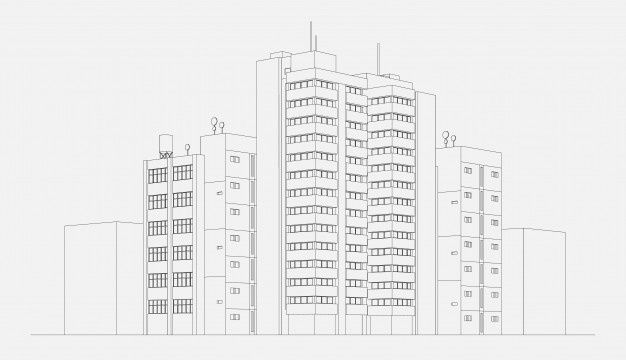Following are the important characteristics of light weight concrete:
1. Low Density:
The density of this concrete varies from 300 to 1200 kg/m3. The lightest variety is suitable for insulation purposes while the heavier variety is used for structural purposes. The low density of cellular concrete makes it suitable for precast roofing and floor units. These units being lighter are easy to handle and transport from factory to the site.
2. High Strength:
The compressive strength of cellular concrete is high in relation to its density. The compressive strength of such concrete has been found to increase with the increase in its density. The tensile strength of cellular concrete is about 15 to 20% of its compressive strength. The strength to mass ratio of cellular concrete is much higher than normal concrete. Thus the weight of roof slab and floor of the cellular concrete are about 25% of the normal reinforced concrete.
3. Durability:
Aerated concrete is slightly alkaline. Due to its porosity and low alkalinity it does not provide any protection to the steel reinforcement as provided by the dense compacted concrete. Thus the reinforcement used in cellular concrete needs special treatment for the protection against corrosion.
4. Thermal Insulation:
The insulation value of light weight concrete is about 3 to 4 times more than that of bricks and about 10 times that of concrete. The degree of insulation of 20 cm thick wall of aerated concrete of density of 800 kg/m3 is the same as that of 40 cm thick brick wall of 1600 kg/m3 density.
5. Fire Resistance:
The fire resistance properties of light weight concrete are excellent. Its low thermal conductivity makes it suitable for the protection of other structures from the effect of fire.
6. Sound Insulation:
The sound insulation of cellular concrete is not as good as that of dense concrete.
7. Shrinkage:
The shrinkage of light weight concrete is small. The autoclaving of cellular concrete reduces its dry shrinkage to l/5th i.e. 20% of that occurring during air curing.
8. Repairability:
The light weight concrete products can be easily cut, drilled, nailed and sawn. This property makes the construction easier. The local repair of the structure can be attended as and when required without affecting the rest of the structure.
9. Speed of Construction:
By adopting prefabrication of units, the structure can be designed on the concept of modular coordination, which ensures a faster rate of construction.
10. Economy:
Due to the high ratio of strength to mass and light weight of cellular concrete products, their use results in lesser consumption of steel. Composite floor construction using precast un-reinforced cellular concrete blocks and reinforced concrete grid beams results in appreciable saving in the consumption of cement and steel. This reduces the cost of construction of roofs and floors considerably. Using this type of construction a saving of about 15-20% can be effected in the construction of roofs and floors in comparison to conventional construction.
11. Quality Control:
With the use of light weight concrete products a better quality control can be exercised as these units are factory made.


Comments are closed